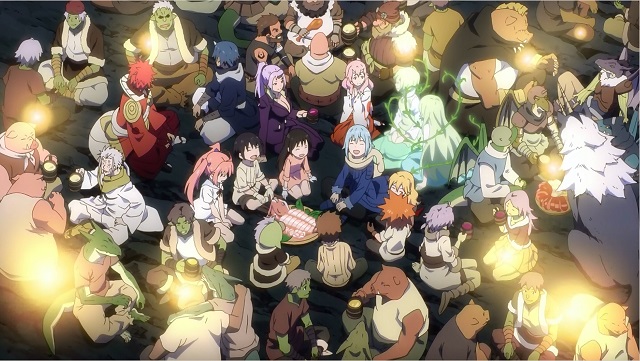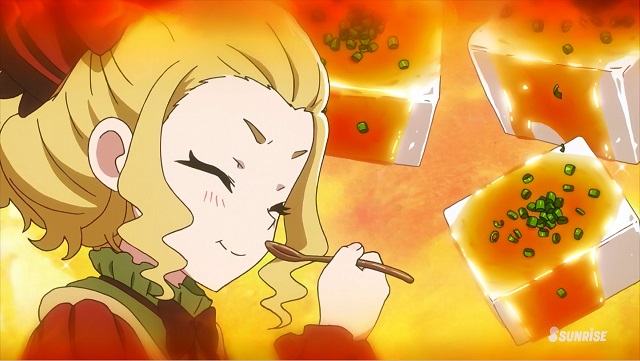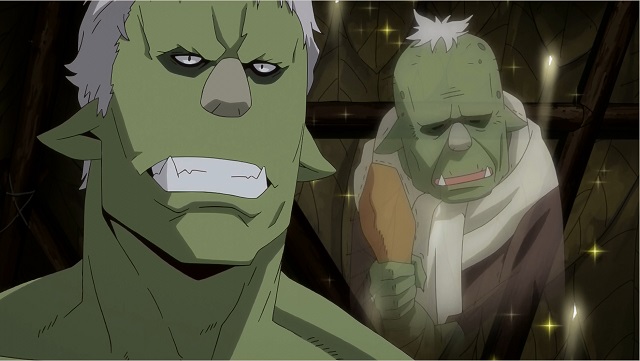A vocaloid video that almost exclusively consists of Japanese onomatopoeia and stock phrases, with a seriously funky beat underneath it.
Making English gender fluid is only difficult to lazy translators
This shows a lack of imagination on the part of Toni Pollard:
Clara Ng’s “Meteors” is a deceptively simple tale of a sweet relationship between an alien and an earthling. Set in a distant galaxy, it plays with the dimensions of space and time. However, reading it in Indonesian likely provides a different experience than reading its English translation. This difference is due to another element that the author is consciously toying with—that of gender. The gender fluidity that exists in the Indonesian is almost impossible to translate satisfactorily for English readers.
[…]
For example, in a story I translated a few years ago, “The Lighthouse” by Linda Christanty, it is not until near the end that a relationship that began during a chance meeting on a beach is revealed to be a lesbian relationship—prior to the end, only the main character is identified as “she.” In the English translation, because of the pronoun “she,” this aspect of the story had to be revealed much earlier.
In the end Toni Pollard decides it’s all too difficult and just assigns (rather, makes up) genders for the characters rather than attempt to keep the gender ambiguity or fluidity of the original story. There are always challenges when translating a story, but really keeping the characters gender consistent in translation shouldn’t be one of them. English offers plenty of ways to be gender ambiguous, but the simple singular they is usually sufficient. That this person rejected it over the expressed wishes of the original author, even if the latter according to them was pleased with the end result, speaks of a lack of imagination and too much ego. Even if they themselves couldn’t have found decent alternatives, why not ask gender fluid people for solutions? Plenty of people on e.g. Twitter who’d be eager to help.
On another level it also seems a bit, how to say it, cultural imperialist to smooth out the gender fluidity of the original Indonesian this way? One of the minor things that annoys me about watching anime is when subtitles either straight up ignore things like honorifics and/or try to find English language equivalents for them. In the first case you lose a layer of meaning, in the second you’re trying to force a round peg into a square hole and you get aberrations like translating “onee-sama” as “missy”. In either case the end result is that something distinctively Japanese is lost in translation to adhere to outdated notions of what good English is like. Here too, with this refusal to keep the gender fluidity of the original, something irreplaceable is lost.
Anime that means something — Introduction
The first anime series I can remember watching I don’t actually remember watching, I just remember playing it in kindergarten afterwards, in what must’ve been 1980. The series was the original Gatchaman, or rather the Dutch dub of the American reworking Battle of the Planets, Strijd der Planeten, with the heroic adventures of the Giefors team. I think I mostly played either the princess or that one fat dude, setting up some expectations for later life.
That’s obviously long before I ever heard of anime, or even Japanimation as it would still be called once I did learn about it, sometime in the later half of the eighties. Before that it was all just cartoons, mostly dubbed into Dutch and often edited for a children’s audience, not that different from all the French or English or Canadian co-productions that we would watch back then. That was in a time when we only had two national channels in the Netherlands, no cable and if you’re lucky and lived close enough to the border, perhaps you’d get a Belgian or German channel too. I remember one glorious Spring afternoon when conditions were clear enough to receive BBC one for five minutes. It was cricket.
For the better part of two decades now I’ve been following Andrew Weiss, first for his comics blogging, then for the mix of insightful commentary on pop culture and autobiographical examination of same. One of the things I envy in his blogging is his dedication to long series of posts on a single subject and ability to see them through even if they take years to complete. One of those series was about albums that mean something, looking at the circumstances in which some of his favourites albums were purchased. When I started thinking about doing a series about the anime that influenced me it was this that came to mind as a template. I’m not sure yet how regular this feature will appear or how many installments it will take, but I’ll try and do it in a rough sort of chronological order.
Colonialism in Isekai — Reincarnated as a Slime
The best recent isekai series is about an enlightened Japanese incel who gets reincarnated as a slime in a fantasy world and teaches all the grateful natives how to live in harmony with each other even though they’re different species.

Is this a fantasy of colonialism? Well, it’s not a million miles away from something like Tarzan. As you know Bob, isekai is a rather popular fantasy subgenre, where the protagonist either gets transported from modern day Japan to a fantasy world, or gets reincarnated into it after dying in an accident (usually courtesy of Truck-kun) or something similar. Sometimes they’re summoned, sometimes it’s an accident and if they’re reincarnated, it’s usually as a reward or apology for dying. Sometimes it’s a light hearted power fantasy, where protag-kun defeats all sorts of threats without breaking a sweat while collecting a harem of grateful fantasy girls, sometimes it’s a grim and gritty revenge fantasy where his seemingly thrash power is revealed to be game breaking because of how cleverly he applies it while seeking revenge on those that done him wrong and defeat the evil overlord menacing the world (the harem is still there of course). Sometimes it’s much more innocent; two recent examples where both of restaurants being transported to a fantasy world and teaching the natives about the wonders of Japanese food. But through all of it runs an imperialist, colonialist streak, as this Pause and Select video argues:
Sometimes this is very obvious, as in Gate, which starts with a dimensional, well, gate opening up in Tokyo through which a fantasy army emerges to attack the city. After initial panic the police and Japanese Self Defence Forces rally and defeat it, with an expeditionary force sent to the other side of the gate to prevent a second attack. A series of battles there results in the deaths of hundreds of thousands of imperial soldiers for little loss on the Japanese side. Once a base is established, the series follows the protagonist, who also helped foil the initial attack on a series of what are essentially hearts and minds missions. A comparison with the US War on Terror and its continuing occupation of Afghanistan and Iraq is obvious. Especially when it quickly becomes clear Japan would very much like to ‘develop’ the new ‘Special Region’.
But usually it’s a bit more subtle, just the idea of a random Japanese person being better at being a hero than the actual inhabitants of fantasyland. That’s colonialism in a nut shell, familiar from Tarzan and decades of American science fiction. The latter makes for a good comparison. The Campbellian/Heinlein science fiction of the socalled Golden Age was cheerfully imperialistic, manly men conquering the stars and engaging in the occasional bit of genocide to make the universe safe for Anglosaxons. Coming from a country still high on manifest destiny it was no surprise that alien races were there only to be conquered or pitied.

Modern Japanese isekai fantasy isn’t this aggressive in its colonial fantasies, as that Pause and Select video explores. It’s more about ‘soft power’, about Japanese culture being superior to the indigenous cultures of fantasyland, as seen in the two “restaurants trapped in fantasyland” series (Isekai Shokudou & Isekai Nobu) we’ve seen the past two years. In both the Japanese food is so obviously more tasty than the fare the fantasylanders are used to even though both are bog standard restaurants serving bog standard food. The latter series was actually commissioned to promote the 2020 Tokyo Olympic Games. Cool Japan in Another World. The most blatant example of this Cool Japan imperialism was 2013’s Outbreak Company, where a shut-in otaku is given the task of selling anime culture to a newly discovered secondary world in a government sponsored attempt to ‘conquer’ this world through culture.
Tensei Shitara Slime Datta Ken, which we started with, is less blatantly otaku pandering and therefore more interesting as an example of soft colonialism. Our protagonist Rimuru is a fairly average isekai protagonist, stabbed to death defending his friends/co-workers from an attack, reincarnated as a slime who has the power to swallow up bigger monsters and copy their power. It’s a classic power fantasy, the meek looking person (or slime) being much more powerful than they look. When he encounters a group of goblins driven from their home by dire wolves, he takes their side, takes out the leader of the wolves and becomes the ruler of both sets of monsters. From that humble beginning he builds up a country where all sorts of monsters can live together in peace under his benevolent dictatorship. It’s a very seductive sort of fantasy and I can’t say I don’t like it, certainly moreso than something like Goblin Slayer, but it remains a colonialist fantasy.

Nothing makes this as clear as the naming scenes. It’s a bit of a fantasy gaming cliche that ordinary monsters are nameless while named monsters are more powerful. And indeed, the low level monster tribes Rimuru encounters are almost entirely nameless, untill he sets out to name them, at a cost to his magic. The results are spectacular, with ordinary goblins becoming super powered and much more human looking. This repeats with every race Rimuru names: the men always become buff slabs of beef while the women gain bouncy bouncy chests, even when they’re lizard people. The unnamed people gain recognition and value only when named by the colonial authorities. Before that, they’re just a mess of small fry.
As an European, this sort of attitude is not new in the stories I’ve consumed, just the way in which this Japanese variant differs from what I’ve read in French comics or seen in American movies. A series like Tensei Shitara Slime Datta Ken is fairly innocuous in context, if patronising towards fictional species and with an attitude that can be traced back to Japan’s WWII era imperialism. Few of us do better here in the west. It’s not vile like Goblin Slayer or Shield Hero which wallow in resentment, but it does pay to keep the background of its particular narrative in mind. It’s not necessarily bad to watch this sort of series, as long as you acknowledge its less savoury aspects.
Zionism’s problem with antisemitism
So BBC Radio Four tweeted about Michael Rosen’s latest Word of Mouth programme, which prompted one Simon Myerson QC to complain about this:

Which in itself was bad enough because this dude took some petty political difference to a completely unrelated topic, but hey. Somebody else responded to him demolishing his argument:

To which he responded:

Which struck me as rather antisemitic in its undertones. Tweeting on Holocaust Memorial Day that “shtetl Judaism” was immolated “because Jews were powerless” is pure victim blaming, of a sort you sometimes seem from Zionists, if not often this openly. Zionism is of course just another variant of 19th century nationalism, the idea that you need to have your own country to be a true nation or people. And if there were other peoples already living in your chosen land, that was of no importance. As such Zionism is really no different from e.g. Serbian or Polish nationalism bound in ethnicity and loath to recognise the rights of other peoples on the same lands.
At the same time Zionism was always opposed to those Jews who’d either choose to assimilate or to live their lives according to their own traditions, without wanting or needing a ‘return’ to Israel. You see that contempt here in Myserson’s dismissal of “shtetl Judaism”. It didn’t survive, it couldn’t defend itself against the Nazis, so it’s worthless, an attitude consciously or unconsciously shared by many Zionists, seeing a strong Israeli state as a shield against persecution. Israel and Israel only can save Jews from persuction, so any other way of Jewish life is suspect and needs to be torn down to save its people from itself. And of course the worst sort of Jewish people doing it wrong are the poor peasants of Eastern Europe, backward and humble and powerless in the face of the Nazis, so there’s a particular hatred among some Zionists for anything that reminds them of that.
Myerson taps into all that, going from trying to dob in Rosen for some imagined crime against Jews to dismissing entire Jewish populations as wrong in the space of two tweets. Interesting to see how quickly somebody like him dives head first into antisemitic ideas, completely unprompted. On Holocaust Memorial Day. While lecturing others about antisemitism.